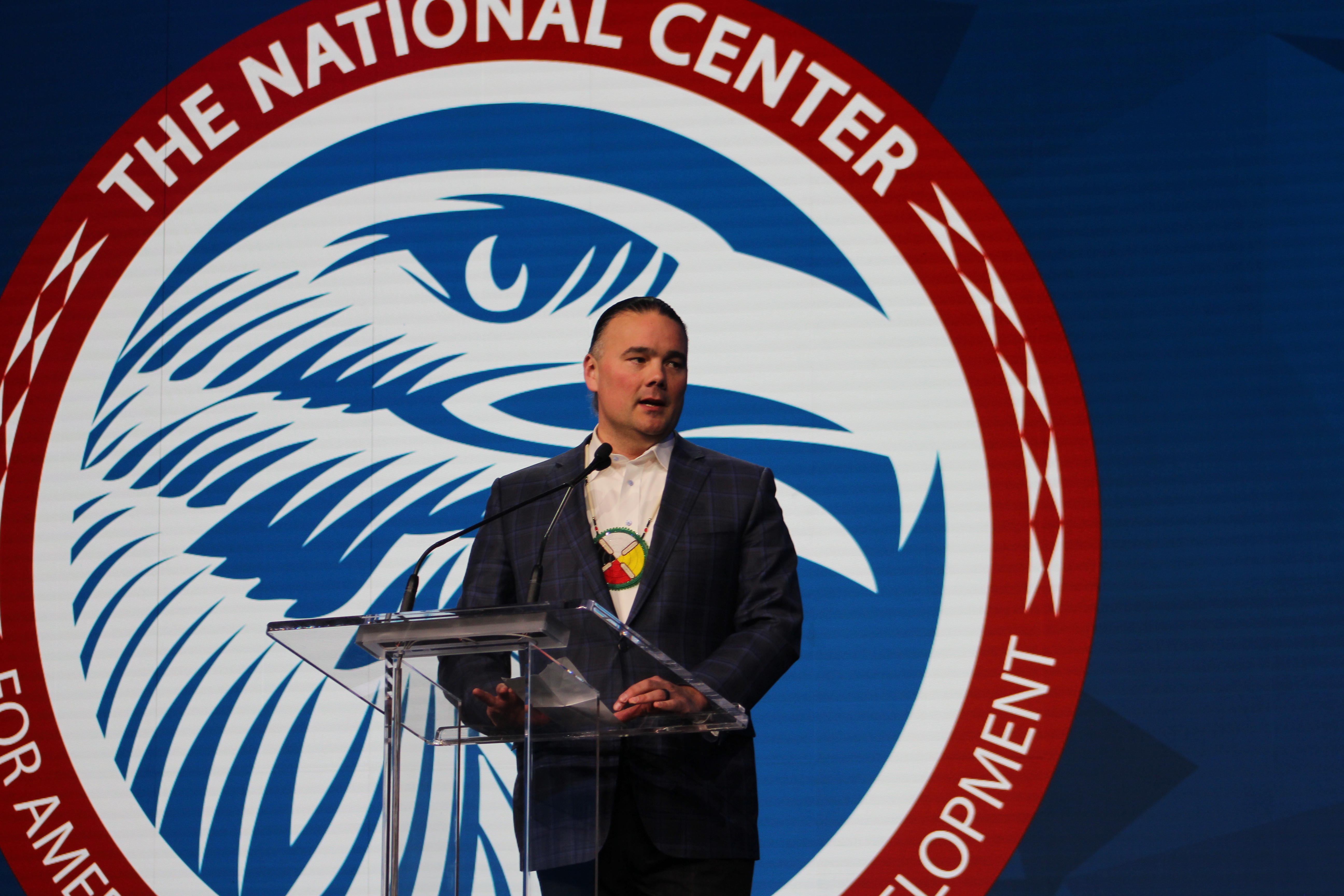
- Details
- By Brian Edwards
Bryan Newland (Bay Mills Indian Community), who served as assistant secretary for Indian Affairs at the U.S. Department of the Interior from 2021 to January 2025, has joined Washington, D.C.-based law firm Powers Pyles Sutter & Verville PC as a principal in its Indian Tribal Governments Group, the firm announced on March 12.
Newland brings extensive experience in federal Indian law, policy and government relations to the firm after completing his term in the Biden administration. His expertise includes gaming regulation, tribal self-governance, energy development, and federal regulatory matters that impact tribal governments and businesses.
[Editor's Note: This article was originally published on Native News Online's sister publication Tribal Business News. Used with permission. All rights reserved.]
His appointment expands the firm's tribal practice, according to Powers Managing Partner Peter W. Thomas. "He is an invaluable resource for all of our practice groups, including healthcare, education, and nonprofit law," Thomas said.
The firm’s tribal governments group provides legal and government relations services to tribal governments and businesses. The practice, led by principals Paul Moorehead, Kevin Wadzinski (Stockbridge-Munsee Band) and Brian Gunn (Colville Tribe), advises tribes on regulatory matters, energy development, gaming and tribal self-governance — areas directly aligned with Newland's expertise.
During his tenure at Interior, Newland oversaw several key agencies including the Bureau of Indian Affairs, Bureau of Indian Education and Bureau of Trust Funds Administration. He led the Federal Indian Boarding School Initiative, which produced two comprehensive reports documenting the legacy of Indian boarding schools in the United States.
The initiative's final report, released in July 2024, identified 417 boarding schools across 37 states and documented at least 973 student deaths at these institutions. The investigation found the federal government spent more than $23.3 billion in inflation-adjusted dollars on the boarding school system between 1871 and 1969.
Newland also spearheaded regulatory reforms for Indian lands, gaming compacts and cultural resource protection. In late 2024, he announced updated regulations for the Tribal Self-Governance program, which allows tribes to assume responsibility for administering programs and services typically provided by the federal government.
"For the past half century, the policy of Tribal self-determination and self-governance has been an unqualified success," Newland said at the 2024 White House Tribal Nations Summit when announcing the regulations.
While Newland earned praise for his work at Interior, his oversight of BIE faced congressional questioning in July 2024 during a hearing about Haskell University. Lawmakers questioned why student complaints of abuse allegedly went unaddressed after being reported to his office. Newland testified he didn't recall receiving the letters directly but took disciplinary actions against staff after learning of the issues.
Prior to his federal appointment, Newland served as president of the Bay Mills Indian Community in Michigan's Upper Peninsula. During his presidency, he oversaw tribal government operations and enterprises, including the development of the first tribally licensed internet gaming operation in the United States.
His earlier career included service in the Obama administration as a counselor and policy advisor to the assistant secretary of Indian Affairs, where he helped develop policies on Indian gaming and lands.
Newland holds a law degree from Michigan State University College of Law and a bachelor of arts from James Madison College at Michigan State University.
More Stories Like This
Native News Weekly (August 25, 2024): D.C. BriefsUS Presidents in Their Own Words Concerning American Indians
Indigenous Actor Elaine Miles Reports Detention by Alleged ICE Agents
Happy Thanksgiving from Native News Online
Coming Up on Native Bidaské: Behind the Animation: Joey Clift Talks “Pow” and Native Storytelling
Help us tell the stories that could save Native languages and food traditions
At a critical moment for Indian Country, Native News Online is embarking on our most ambitious reporting project yet: "Cultivating Culture," a three-year investigation into two forces shaping Native community survival—food sovereignty and language revitalization.
The devastating impact of COVID-19 accelerated the loss of Native elders and with them, irreplaceable cultural knowledge. Yet across tribal communities, innovative leaders are fighting back, reclaiming traditional food systems and breathing new life into Native languages. These aren't just cultural preservation efforts—they're powerful pathways to community health, healing, and resilience.
Our dedicated reporting team will spend three years documenting these stories through on-the-ground reporting in 18 tribal communities, producing over 200 in-depth stories, 18 podcast episodes, and multimedia content that amplifies Indigenous voices. We'll show policymakers, funders, and allies how cultural restoration directly impacts physical and mental wellness while celebrating successful models of sovereignty and self-determination.
This isn't corporate media parachuting into Indian Country for a quick story. This is sustained, relationship-based journalism by Native reporters who understand these communities. It's "Warrior Journalism"—fearless reporting that serves the 5.5 million readers who depend on us for news that mainstream media often ignores.
We need your help right now. While we've secured partial funding, we're still $450,000 short of our three-year budget. Our immediate goal is $25,000 this month to keep this critical work moving forward—funding reporter salaries, travel to remote communities, photography, and the deep reporting these stories deserve.
Every dollar directly supports Indigenous journalists telling Indigenous stories. Whether it's $5 or $50, your contribution ensures these vital narratives of resilience, innovation, and hope don't disappear into silence.
 The stakes couldn't be higher. Native languages are being lost at an alarming rate. Food insecurity plagues many tribal communities. But solutions are emerging, and these stories need to be told.
The stakes couldn't be higher. Native languages are being lost at an alarming rate. Food insecurity plagues many tribal communities. But solutions are emerging, and these stories need to be told.
Support independent Native journalism. Fund the stories that matter.
Levi Rickert (Potawatomi), Editor & Publisher

